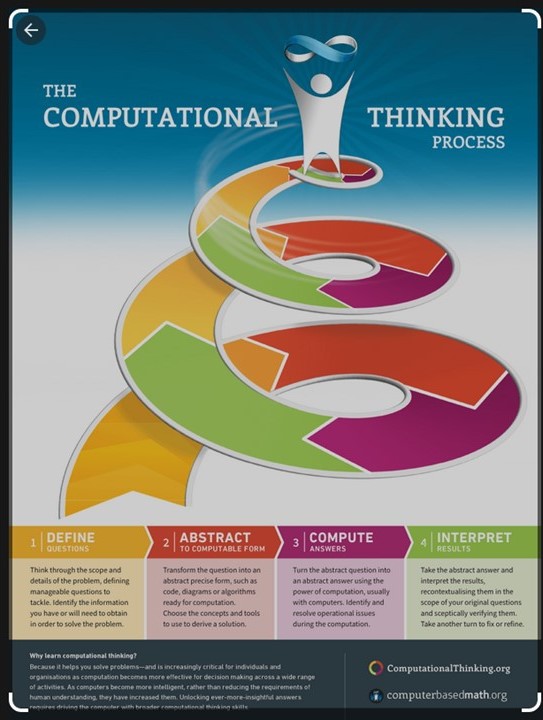Today’s scientists have substituted mathematics for experiments, and they wander off through equation after equation, and eventually build a structure which has no relation to reality. — Nikola Tesla
What is computational thinking? Search for the term using Google returns a number of definitions; for example, DIMACS at Rutgers, Wolfram, and especially Stephen Wolfram.
I think this subjects is interpreted as “Computers in Schools.” In my opinion, simply teaching elementary school students how to program is a waste of time. From my limited conversations, it provides the already overworked teachers either yet another topic to cover, or perhaps a bit of a respite so they can concentrate on all the paperwork foisted upon them.
Computers can be a powerful tool for education and research; or, they can be another solution looking for a problem. If a student or researcher doesn’t know how to formulate the question, then a computer often provides a means by which wrong answers are achieved faster; and, unfortunately with the authority of being computer produced!

In my opinion, this is where computational thinking enters. Computational thinking allows the ‘computer’ to become a part of the problem stating and solving process.
I must add, it is important that everyone learn how to observe. To me that means getting outside and observing the world. Or, perhaps, sitting in a coffee shop and observing the gestalt of the setting.
“In Mathematics the art of proposing a question must be held of higher value than solving it.” — Georg Cantor